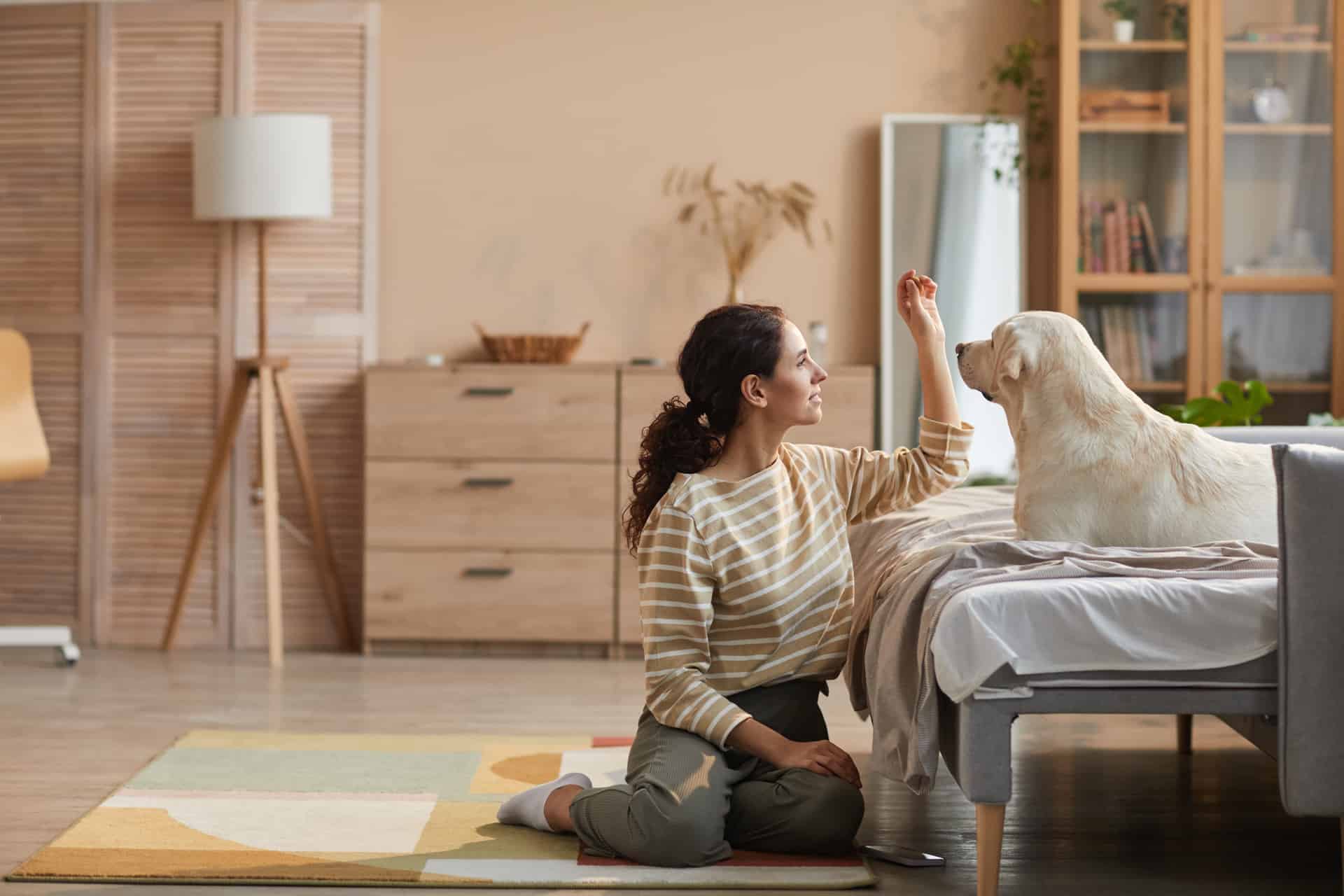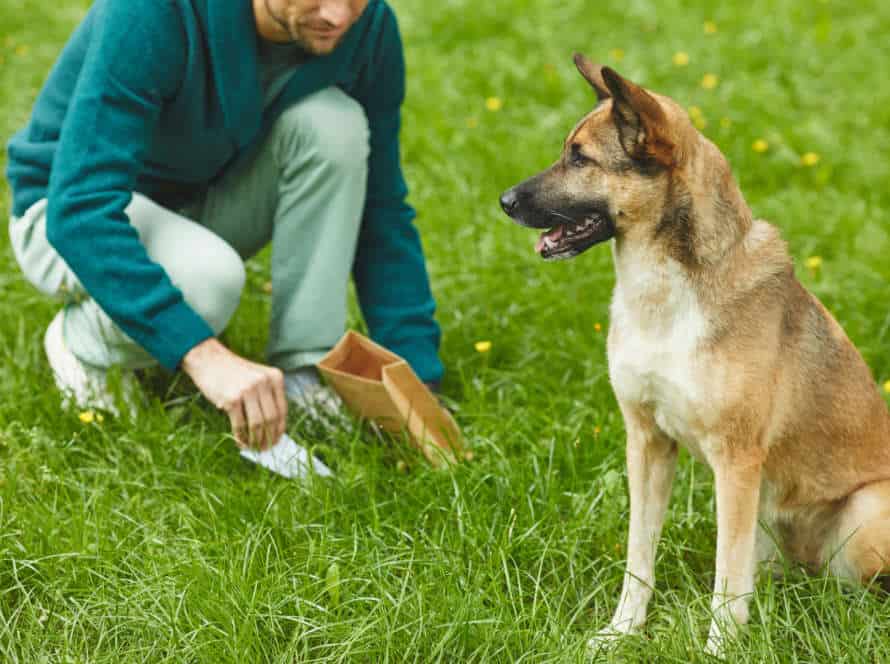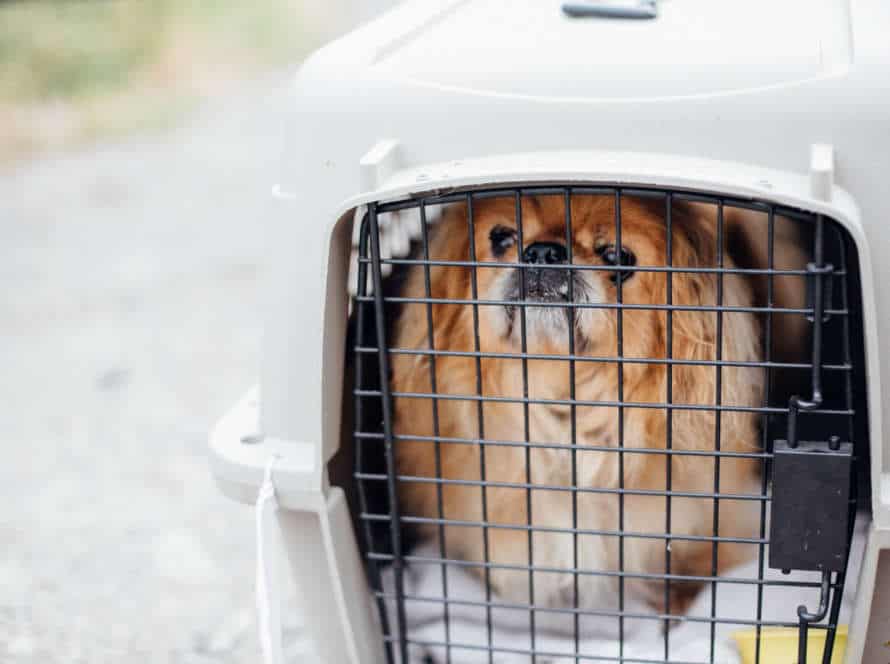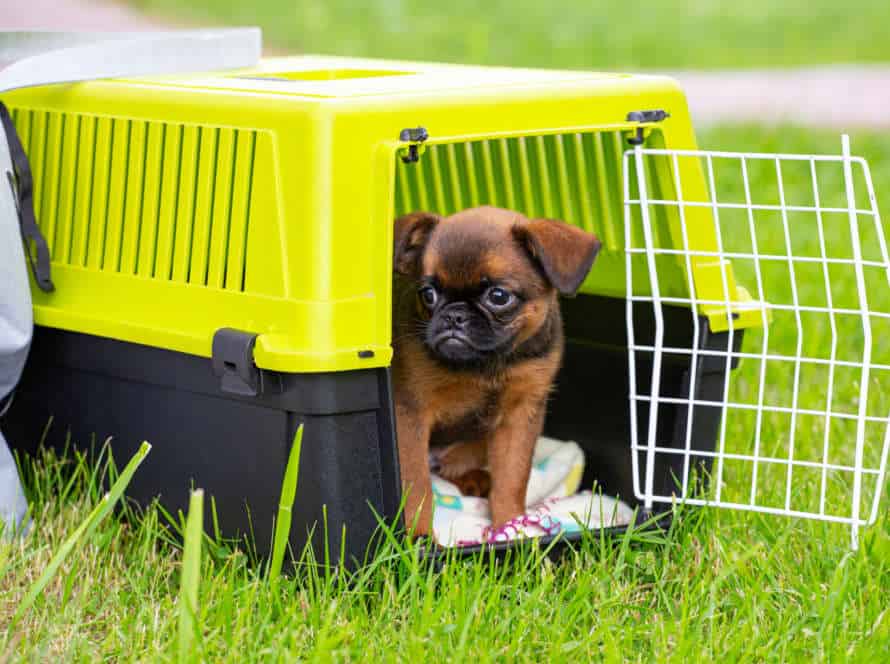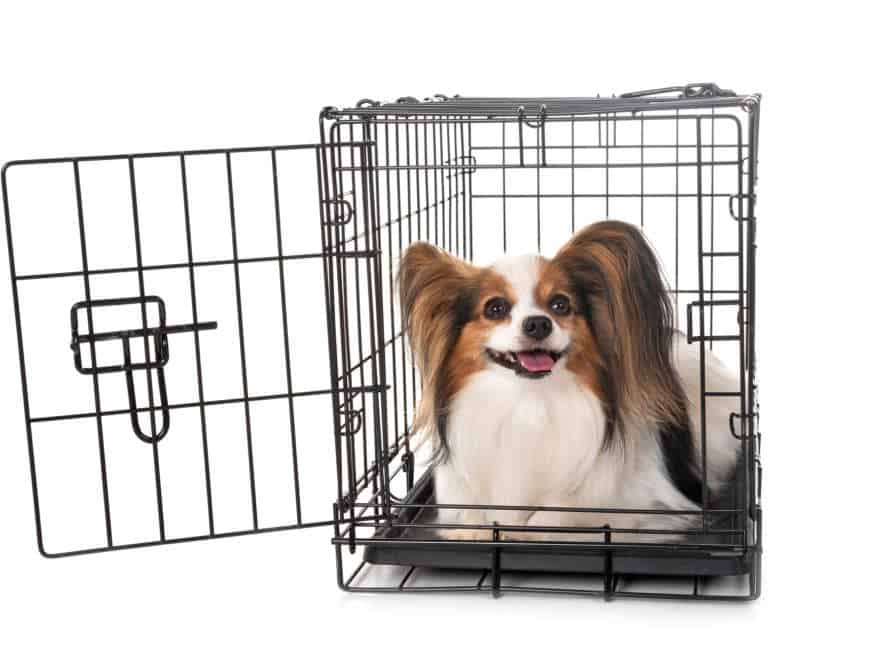Making House Training a Positive Experience for Your Dog
House training your pup can be a tricky, however worthwhile, experience. It’s essential to make certain that this process is a happy one for both you and your dog. With the right mindset and some helpful advice, house training your pup can be a positive journey. This will result in your pup being a well-behaved and loyal friend.
Understand your dog’s behavior and needs
To have a great relationship with your pup, comprehend their behavior and needs. House training can be exciting, but it’s important to make it fun and engaging to keep your pup motivated. Here are some tips:
- Create a special area for toileting and encourage your pup to use it.
- Use treats and praise as rewards for good behavior.
- Have a consistent routine so your dog knows when to go outside.
- Have stimulating activities and toys to reduce accidents.
- Make sure basic needs are met, like food, water, and exercise.
- Stay patient and avoid punishment-based training. It can be damaging for their mental health.
Use positive reinforcement techniques
Positive reinforcement techniques are the key to house training dogs. They make the experience positive, rewarding and effective. Here’s how to use them:
- Reward your pup with treats or praise when they eliminate outside.
- Have a cue word, like “go potty”, to help them know what you want.
- Be consistent with training, keep a routine and take regular trips out.
- Never punish for accidents; it creates fear and confusion.
- Keep sessions short and fun, always end on a positive note.
These techniques make house training enjoyable – building trust and communication between you and your pup.
Create a consistent routine
When house training your pup, making a regular routine is vital for an enjoyable experience for you and your furry pal. Here’s how to create a consistent routine:
- Set up a schedule for toilet breaks – Take your pup outdoors at certain times each day. Think early morning, after meals and before bedtime.
- Go to the same place – Take your pup to the same spot each time. The smell of previous occasions can encourage the conduct.
- Reward good behaviour – When your pup goes to the toilet outside, give them praise or a treat.
- Keep your pup in a crate or restricted when you’re not home – This stops accidents and encourages good behaviour.
- Be patient and consistent – With time, your pup will learn the routine and house training will be a positive experience for both of you.
Have fun and appreciate the bonding moment with your four-legged mate!
Pro tip: To make it more fun, teach your pup a command for going to the toilet, like “go potty” or “do your business”.
Keeping House Training Engaging and Fun for Your Dog
House training a dog? Patience and consistency are key. But make it fun too! Here’s how:
- Engage your pet.
- Give them something to look forward to during training sessions.
- Keep it enjoyable!
Use treats and toys to motivate your dog
Training your pooch can be daunting. But, treats and toys can be great motivators to make the process more enjoyable. Here’s how to make it fun:
- Give them high-value treats like small bits of chicken or beef when they pee outside.
- Reward them with verbal praise and pats, with the treat.
- Play interactive games like ball or frisbee for a break.
- Stick to a routine and reward them for going outside every time.
These tips will make house training an enjoyable experience for your pup, leading to faster and better results.
Introduce some playtime during and after training
Making house training fun for your pup is a must! Give playtime during and after training to excite your dog. Here are tips to make it enjoyable:
- Use treats – they’ll have a good feeling about the process.
- Play games like fetch, tug-of-war, or hide-and-seek.
- Keep the sessions short – avoid boring your pup.
- Give praise and affection to encourage good behavior.
Remember, making house training fun is key.
Use different training methods for added interest
Make house training more fun for your pooch! Mix up the methods and add interest. Here’s what you can do:
- Positive reinforcement – Praise and treat your pup when they go in the correct spot. This helps them learn the connection between pottying outside and rewards.
- Clicker training – Use a clicker to mark good behavior and reward them. This helps them associate the clicking sound with a prize.
- Crate training – Use a crate or an enclosed space to make house training easier. This encourages bladder and bowel control and provides a safe area for them.
- Pad training – Use puppy pads to teach them where to go. Perfect for those in high-rise apartments or those without access to an outdoor space.
By mixing up these training methods, you can make house training a fun experience for your furry pal!
Common Challenges and Solutions
House-training your pup is no easy feat! But with an appropriate strategy, it can be just as amusing and gratifying. Sad to say, there are typical problems that come up and make it hard. This part will look into some of them and offer tips on how to manage. With the correct approach and a sound plan, house-training your pooch can be a pleasant and fruitful experience.
Dealing with Accidents
House training your pup? It’s gonna take effort and patience! But accidents might still happen. Here are some common ones and solutions to keep training fun.
- Missed the designated spot? Don’t scold ’em. Interrupt and lead to the spot with a leash. Reward ’em when they finish in the right spot.
- Marking indoors? Keep ’em in sight. Again, interrupt and reward. Limit access to certain areas until trained.
- Not going outside? Take ’em to a new, exciting location. Or make a routine – after meals or naps.
Pro Tip: Positive reinforcement is key. Celebrate successes and avoid punishments.
Overcoming Fear or Anxiety
Beating fear and stress are vital for keeping house training fun and exciting for your pup. Here are a few common problems and solutions:
Problem: Your pup is scared to potty outside due to loud sounds, strangers, or strange environments.
Solution: Step-by-step introduce your pup to new places by taking little walks with them daily. Use positive reinforcement and snacks to help your pup connect these novel situations with good experiences.
Problem: Your pup is anxious and starts peeing or pooping inside the house despite being house trained.
Solution: Pups can get anxious due to changes in their routine or environment. Comfort your pup and provide stimulation through exercise, playtime, and regular routines. In some cases, medication or natural remedies may be needed. Consult your vet for help.
Problem: Your pup is scared of the crate, making house training difficult.
Solution: Introduce the crate gradually and make it a pleasant and secure space. Urge your pup to stay in there with rewards, toys, or a cozy bed. Crate for brief periods and progressively raise the duration. Be patient with your pup and don’t force them into the crate. Cheer for them and teach them to link the crate with great experiences gradually.
Addressing Distractions and Obstacles
House training your pup can be tough. Here are some common issues and solutions:
- Accidents on the floor: Clean thoroughly after accidents. Offer positive reinforcement when they avoid accidents.
- Barking and whining: Give enough potty breaks, playtime, and attention.
- Wandering off: Keep pup on a leash during potty breaks, have a designated potty area, and give rewards when they stay on track.
Address distractions and obstacles positively for efficient and fun learning for your dog!
Tips for Long-term Success
Training your pup to use the restroom indoors is an important part of being a pet owner. Though it can be tough, it can be enjoyable and fulfilling if done the correct way. You must be steady and patient and give rewards for good behavior. Also, you need to have the correct advice for long-lasting success. Let’s begin!
Track your dog’s progress and adjust accordingly
Achieving success with long-term house training for your pup requires tracking their growth. Here are some tips to help you:
- Record successes and setbacks as you go.
- Reward your pup with treats or praises when they do good.
- If your pup is bored or frustrated, switch up the routine or try different training methods.
- Be both patient and consistent for the best outcomes.
- Remember, every doggo is unique and may respond differently – so remain flexible and adjust as needed to get the best results for your furry friend!
Make sure your dog is getting enough exercise and mental stimulation
For your pup’s health and happiness, make sure they get enough exercise and mental stimulation. Here’re some tips to help your canine have fun and learn!
- Walks: Take your pup out twice a day for physical exercise, bonding, and good behavior.
- Interactive Toys: Keep them engaged with toys that stimulate their minds.
- Teach Tricks: Show them new tricks to keep them mentally active and enhance their skills.
- Dog Parks: Take them to socialize and play with other pooches.
- Mental Stimulation: Hide toys, do scent games, and obedience training.
Pro Tip: Keep a routine to balance their lifestyle and make house training enjoyable.
Continue to reinforce good behavior and always be patient and consistent.
Training your pup can be tricky, but with patience & consistency you can have success in the long run. Here’s some tips to make it fun & engaging:
- Use positive reinforcement – praise, treats, or playtime – to show what is expected.
- Be consistent & ignore accidents, reward success.
- Notice if the pup is sniffing or circling, they might need to go.
- Give the same cue to eliminate & praise them when they do.
- Watch your pup & keep them in a small area when unsupervised to avoid accidents.
Remember, all dogs learn at their own pace. Keep reinforcing the positive & you’ll have success!
Frequently Asked Questions
Q: How can I keep house training fun and engaging for my dog?
A: One way to keep house training fun is to use positive reinforcement, such as treats or praise, when your dog goes potty outside. Also, try to make the experience enjoyable by playing with your dog or giving them a toy after they go.
Q: What should I do if my dog has accidents inside?
A: If your dog has an accident inside, do not punish them. Instead, clean up the mess and take them outside immediately. Consistency is key when house training, so make sure to take your dog outside regularly.
Q: Should I use a crate when house training?
A: Many trainers recommend using a crate when house training. A crate can make it easier to supervise your dog and prevent accidents. However, it is important to make sure that the crate is the appropriate size for your dog and that they have plenty of opportunities to go outside.
Q: What if my dog is afraid to go outside?
A: If your dog is fearful of going outside, it is important to take things slow and make sure they feel comfortable. Start by taking them outside for short periods of time and gradually increasing the duration. Use positive reinforcement to encourage your dog to go potty outside.
Q: How long does house training typically take?
A: House training can take anywhere from a few weeks to several months, depending on the dog and the consistency of their training. It is important to be patient and consistent, and to celebrate small successes along the way.
Q: What should I do if my dog is still having accidents after being house trained?
A: If your dog is still having accidents after being house trained, it is important to rule out any medical issues. Once medical issues have been ruled out, you may need to go back to basics with your training to reinforce good habits.

